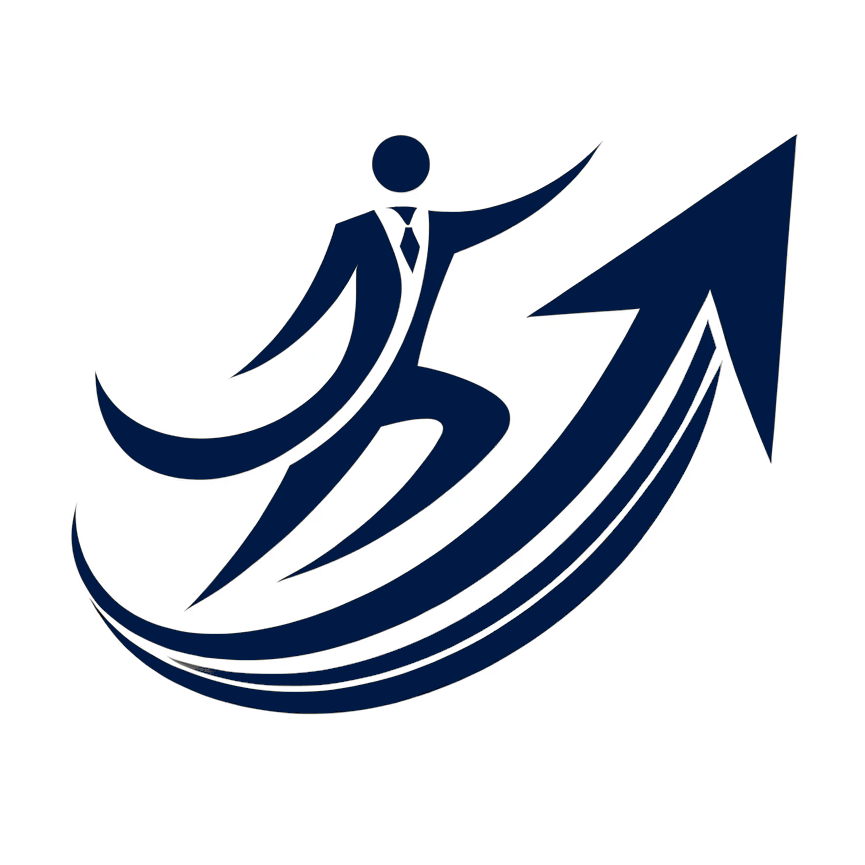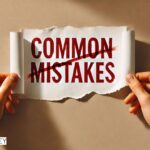- What This Article Covers
- 1. Do Your Research:
- 2. Turn OFF Your Cellphone:
- 3. Leave the Gum at Home:
- 4. Get Some Sleep:
- 5. Dress the Part:
- 6. Know Your Background Information:
- 7. Know
Your Resume : - 8. Communication is a Two-Way Street:
- 9. Don't Badmouth Your Current Company:
- 10. Tell Me About Yourself:
- 11. Tell the Truth:
- 12. Be Prepared to Ask Questions:
- 13. Don't Be Late:
- 14. Don't Talk Benefits:
- 15. Don't Forget to Follow-up:
- Next Steps
- Final Words
We may earn a commission if you click on a product link and make a purchase at no additional cost to you. For more information, please see our disclosure policy.
Last Updated on April 11, 2025
Even if everything goes as planned, interviews can be very stressful. The last thing you want is for some blunder to occur that could have been easily avoided.
Following is a list of potential mistakes. Can you see yourself starring in one of these epic disasters? Relax. Running through the handful of worst-case scenarios outlined here can help ease pre-interview time approaches; it can be easy to forget about it.
Ever wondered what NOT to do in a job interview? Prepare to be shocked! Check out these 15 outrageous interview blunders and make sure you're not repeating them! #JobInterview #CareerTips #InterviewBlundersClick To TweetWhat This Article Covers
- Avoiding Common Interview Mistakes: Learn the most frequent interview blunders that can cost you the job and how to avoid them.
- Essential Pre-Interview Preparation: Discover why researching the company, reviewing
your resume , and preparing answers to common questions are crucial for success. - Professionalism and Etiquette: Understand the importance of dressing appropriately, turning off your phone, and maintaining positive body language during an interview.
- Effective Communication Strategies: Learn how to engage in meaningful dialogue, answer questions confidently, and ask insightful questions to impress the interviewer.
- The Importance of Honesty and Positivity: Find out why being truthful about your experience and avoiding negative talk about previous employers is essential.
- Following Up After the Interview: Learn why sending a thank-you
email or letter can leave a lasting impression and increase your chances of getting hired.
1. Do Your Research:
You should have ample time to review the company (and the interviewer via LinkedIn) before your interview. Avoid calling the interviewer by the wrong name or providing incomplete or incorrect information about the company. Look at How to Be Impressive Before, During, and After Your Interview.
2. Turn OFF Your Cellphone:
It’s not good if your cellphone goes off during an interview (including
To avoid this, plan to reflect before stepping into the building. Run through a checklist, whether it’s mental or written, to ensure you’ve taken care of all the simple, goofy things that can blossom into big mistakes later.
Resume review, cover letters and interview preparation. Learn about the critical mistakes you may be making in your resume and cover letters. Find out how to fix it and start getting job interviews.
3. Leave the Gum at Home:
Chewing gum during a job interview is not a good idea. If you need to freshen your breath before the interview, spit out your gum before entering the building.
4. Get Some Sleep:
Just as bad is acting bored or being tired during an interview. A big yawn is not going to impress. You need to be energized and attentive, which means getting a good night’s sleep beforehand. Don’t shortcut this step by relying on an energy drink to perk you up. You’ll be at your best if you’re naturally alert.
Jobscan helps you optimize your resume for any job, highlighting the key experience and skills recruiters need to see.
5. Dress the Part:
One of job seekers’ most frequently stated advice is to dress appropriately, yet
6. Know Your Background Information:
Often, a job seeker was caught unprepared with a lengthy application to fill out at the interview location. Come equipped with all the information you need concerning employment history, your previous addresses, military service dates, etc.
Most people have one or two red flags in their background – some minor and embarrassing, others major job killers. Given today's high-tech world, with its rapid communication and instant background checks, your red flags may follow you wherever you go.
7. Know Your Resume :
You would be surprised how many people are not familiar with the details of their resumes. Make sure you know your own resume inside and out. It isn’t very comfortable to be asked specifics about a project you boasted about on the resume and respond with a blank look. Even if someone helped you write the resume, you definitely should be the expert.
8. Communication is a Two-Way Street:
While the hiring manager will ask the questions, they expect a dialogue with the candidate. Concentrate on genuinely communicating with the interviewer. It starts with a handshake and a friendly greeting. There have been cases where the interviewee barely said a word and others where the interviewee dominated the conversation. Slow down, relax, and be yourself.
In a competitive job market, the key to landing your dream job lies in the art of the interview. "How To Answer Job Interview Questions" is your indispensable guide to navigating the challenging landscape of job interviews with confidence and finesse.
9. Don’t Badmouth Your Current Company:
You know the old saying – “If you have nothing nice to say, don’t say anything at all”. Even if you had a horrible time with your current or previous employers, don’t badmouth them to the interviewer. You’ll just leave the impression of being disgruntled and unprofessional.
10. Tell Me About Yourself:
This is a common question, but imagine being asked it and not knowing what to say. This question makes many people nervous, and some have rattled on about their family, dog, or personal issues. The question is meant for your professional life, not personal. Plan and have a great story to tell.
11. Tell the Truth:
Honesty is mandatory. Not being truthful about your experience or education will haunt you. Why would you say you graduated from a
12. Be Prepared to Ask Questions:
One of the absolute best ways to feel more prepared for an interview is to have some questions prepared. You should have questions! This means researching the company and position ahead of time. An interviewer can easily spot a shallow, unprepared question. Take a look at 10 Questions to Ask at an Interview.
13. Don’t Be Late:
The worst thing you can do is to be late for your interview. If possible, visit the building several days before the interview to familiarize yourself with the location. Ensure you have time to sign in at the security desk, as you never know what obstacles will slow you down. Get to the interview location at least 15 minutes early (but don’t go in until close to the agreed time). The extra time will also allow you to mentally calm and prepare yourself. If you are late, be sure you don’t claim that promptness is one of your greatest strengths!
The Job Interview Style Guide is a conversational step-by-step manual for men and women who want to learn how to dress for an interview and automatically attract employers in a way that will make them stand out.
14. Don’t Talk Benefits:
You will eventually need to discuss benefits, compensation, and vacation days, but these topics should be saved for the final round (or when you receive the job offer). Keep it low-key even if you are asked about your acceptable
15. Don’t Forget to Follow-up:
Send a thank you letter (take a look at Have you sent your Thank You letter?)that shows your continued interest in the position and highlights the positives from the interview. It’s incredible how many people neglect this vital step. When you do it, it’s almost guaranteed to impress the interviewer and keep you fresh in his or her mind.
Despite all the preparation in the world, you could still fall flat on your face. You’re only human, after all. It’s not something to beat yourself up over, provided you don’t make the same mistakes repeatedly. Everyone has a bad day, a bit of bad luck, or unforeseen circumstances that can throw just about anyone off. Don’t dwell on mistakes. Use them as learning experiences that will help you do better next time.
Next Steps
- Prepare Thoroughly: Research the company, review
your resume , and practice answering commoninterview questions to boost confidence and avoid last-minute surprises. - Dress Professionally: Choose appropriate attire that aligns with the company’s culture and industry while ensuring you present yourself as polished and professional.
- Master Your Communication: Engage in clear, confident, and respectful dialogue with the interviewer while actively listening and maintaining good eye contact.
- Follow Up Professionally: Send a personalized thank-you
email or letter to express gratitude, reinforce your interest in the position, and highlight key points from the interview. - Learn from the Experience: Reflect on what went well and what could be improved, using each interview as a stepping stone toward future success.
Final Words
A successful interview requires preparation, professionalism, and confidence. You can make a strong impression on potential employers by avoiding common mistakes, improving your communication, and following up effectively. Every interview is an opportunity to learn and refine your approach, bringing you one step closer to landing your desired job.
Ace your next interview. Read on for some of the best job interview books that will help you ace your next interview.
Related posts:
Joey Trebif is the pen name of Mark Fiebert, a former finance executive who hired and managed dozens of professionals during his 30-plus-year career. He now shares expert job search, resume, and career advice on CareerAlley.com.












